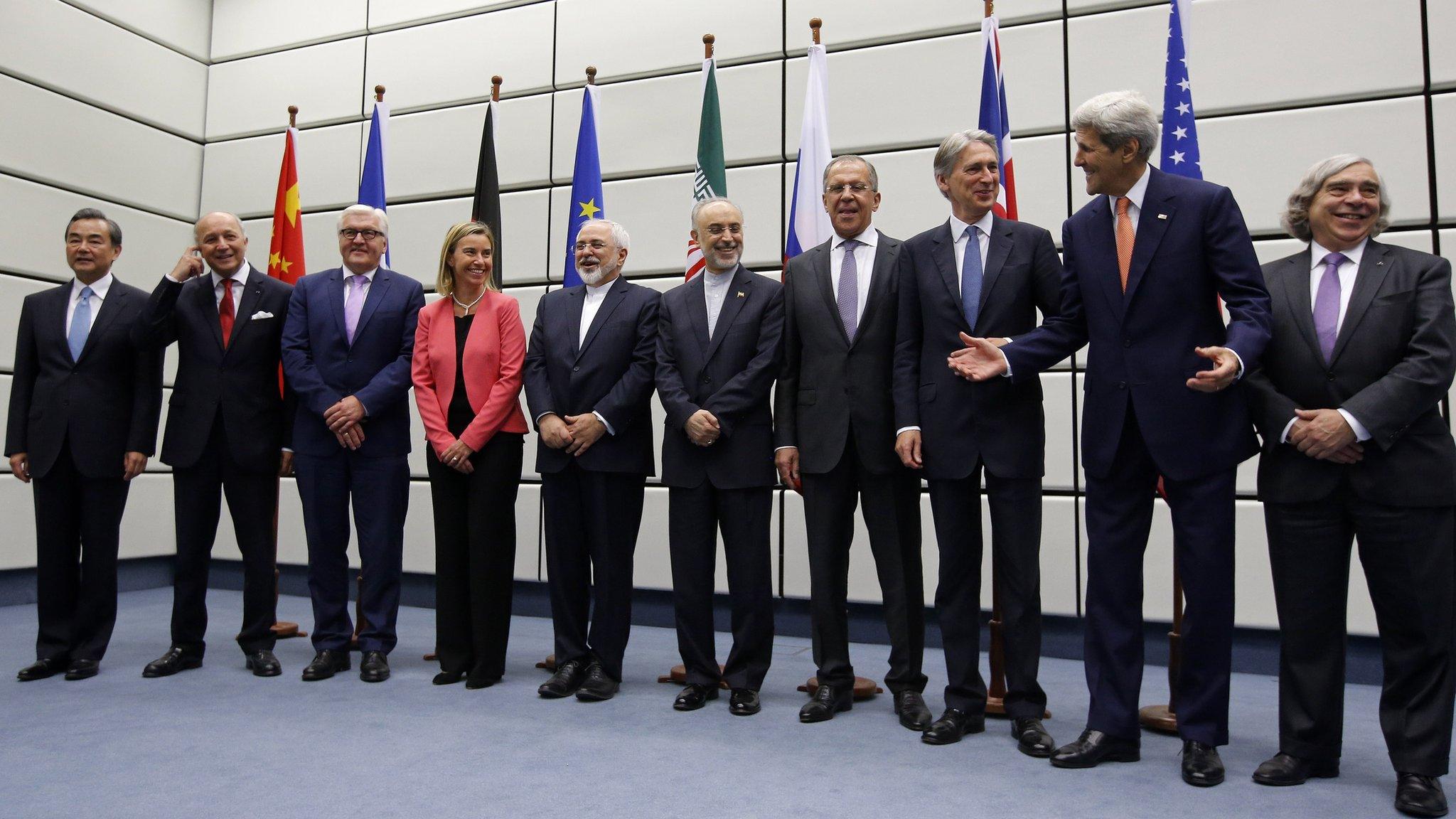Iran nuclear deal: Boris Johnson visits US for talks
- Published
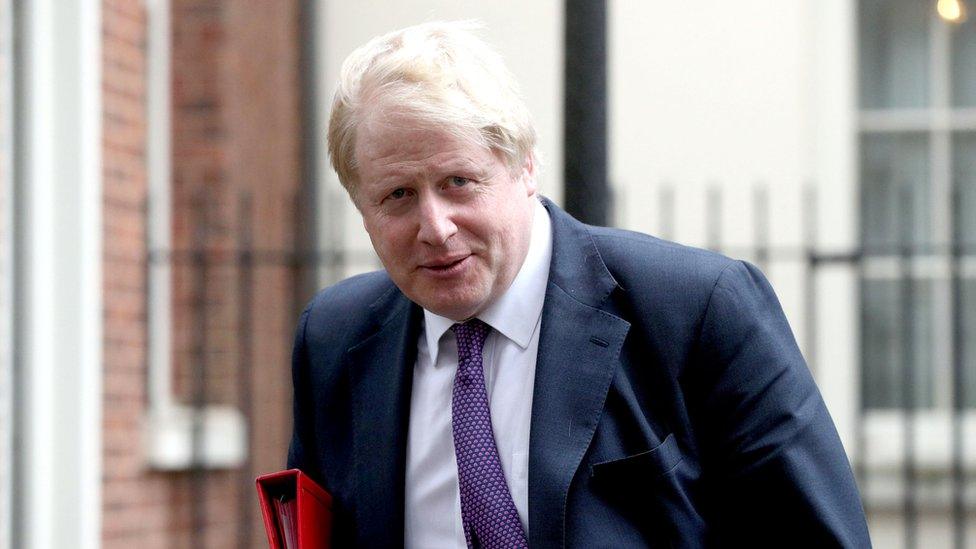
Foreign Secretary Boris Johnson will have two days of talks with White House officials
Boris Johnson is visiting Washington to urge the US not to scrap the international deal designed to prevent Iran acquiring nuclear weapons.
The UK and its European allies have until 12 May to persuade President Donald Trump to stick with the deal.
Mr Trump has strongly criticised the agreement, which he calls "insane".
In a call with Theresa May on Saturday, the president "underscored his commitment to ensure that Iran never acquires a nuclear weapon".
In the landmark deal - signed by the US, China, Russia, Germany, France, the UK and Iran - the latter agrees to limit its nuclear activities in return for the easing of sanctions on its economy.
European allies France, the UK and Germany all agree the current deal is the best way to stop Iran developing nuclear weapons and the UN also warned Mr Trump not to walk away from the deal.
But Mr Trump has threatened to withdraw unless the signatories agree to "fix the deal's disastrous flaws."
The British Ambassador to the US says France, UK and Germany have been working together for weeks to figure out a new way to address Mr Trump's concerns that the terms of the agreement are too lenient.
However, Sir Kim Darroch insists all three countries are looking at how a deal would work even without the US.
Iran's President Hassan Rouhani says the US will face "historic regret" if it pulls out.
In remarks carried live on state television, he said Iran had "a plan to counter any decision Trump may take and we will confront it".
A timeline of what Trump's said about the Iran deal
Mr Johnson will meet US Vice-President Mike Pence, National Security Adviser John Bolton and foreign policy leaders in Congress.
Ahead of the trip, Mr Johnson said the UK and US are "in lockstep" on many global foreign policy issues, citing the response to the use of chemical weapons in Syria and the Salisbury poisonings.
He added: "The UK, US and European partners are also united in our effort to tackle the kind of Iranian behaviour that makes the Middle East region less secure - its cyber activities, its support for groups like Hezbollah, and its dangerous missile programme, which is arming Houthi militias in Yemen."
The UK-US talks come after Israel revealed "secret nuclear files" accusing Iran of having run a secret nuclear weapons programme, which was reportedly mothballed 15 years ago.
US Secretary of State Mike Pompeo said the documents were authentic and show the 2015 Iran nuclear deal was "built on lies".
Iran, in turn, accused Mr Netanyahu of lying. Foreign Minister Javad Zarif said the documents produced by Israel were a rehash of old allegations already dealt with by the International Atomic Energy Agency (IAEA), the UN's nuclear watchdog.
Mr Trump has until the deadline of 12 May to make a decision on the deal - the next deadline for waiving sanctions.
Earlier this month, Mr Johnson said it was important to keep the deal "while building on it in order to take account of the legitimate concerns of the US".
Mr Johnson's discussions are also expected to cover the crisis in Syria and also North Korea, ahead of Mr Trump's meeting with Kim Jong-un, which now has a date and location arranged.
- Published7 August 2018
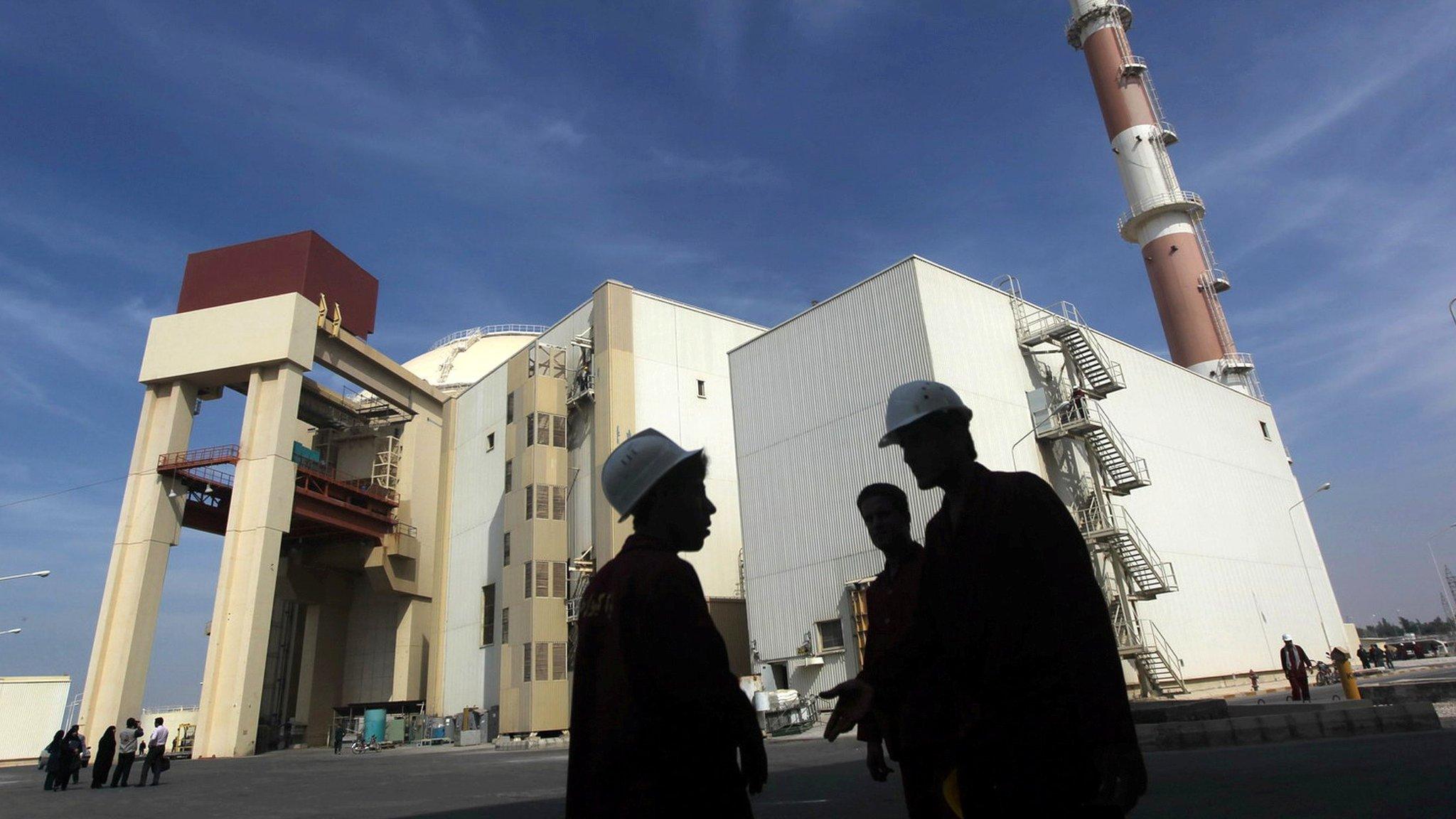
- Published3 May 2018
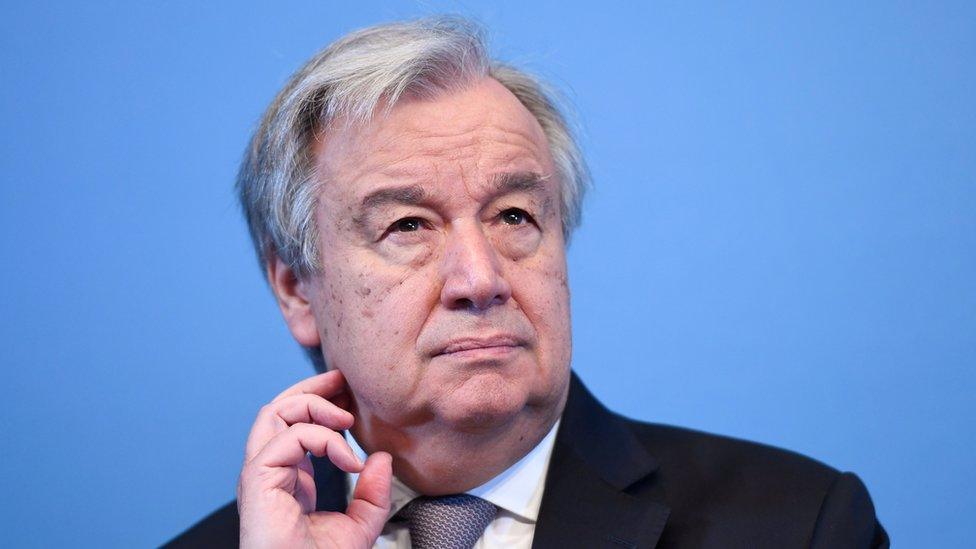
- Published1 May 2018
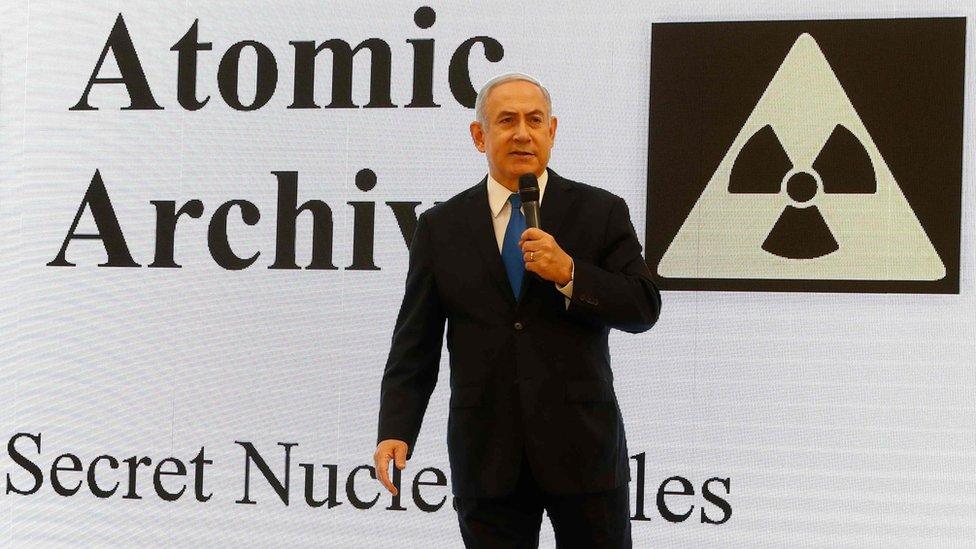
- Published1 May 2018

- Published23 November 2021
